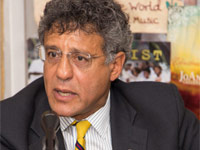
The removal of an accused person’s right to make an unsworn statement during trial is not unconstitutional, according to a Supreme Court judge.
Justice Indra Hariprashad-Charles made the ruling in the murder trial of Kevano Musgrove, after his lawyer Murrio Ducille argued that an amendment to the Criminal Procedure Code “shifted the burden of proof” by compelling an accused to give evidence at trial.
Prior to amendments to the Criminal Procedure Code, an accused had the right to remain silent, give evidence from the witness box or make an unchallenged statement from the prisoner’s dock. Musgrove chose to remain silent.
In denying the motion, Hariprashad-Charles referenced a previous decision she made in Anguilla in 2001 in which the same issues were raised.
Hariprashad-Charles asked,”Why should an accused person be allowed to say anything to a judge and a jury without it being tested in cross-examination? This undoubtedly puts the accused person in a more advantageous position, bearing in mind that he or she is presumed innocent until proven guilty. This privilege, to my mind, is an anomaly. And why should an anomalous privilege remain in our statute books?”
Hariprashad-Charles said the amendments did not infringe an accused’s constitutional right.
When she delivered her Anguillan judgment, Hariprashad-Charles said that her ruling “would have far-reaching implications not only in Anguilla but regionally and perhaps internationally. This is predominantly so because some countries have already enacted legislation that abolished the accused’s right to remain in the dock and make an unsworn statement, while others are contemplating doing so,” she said in that judgement.
Source: The Nassau Guardian



